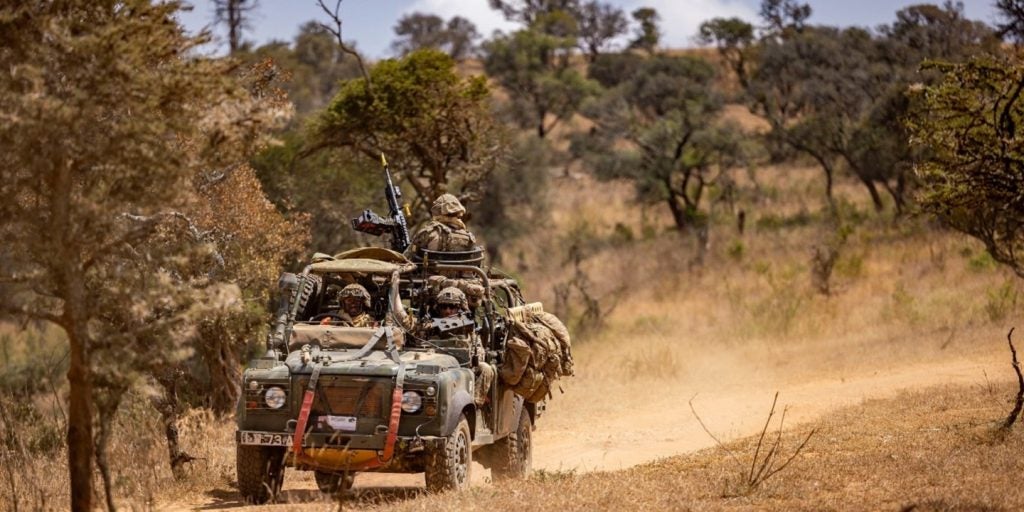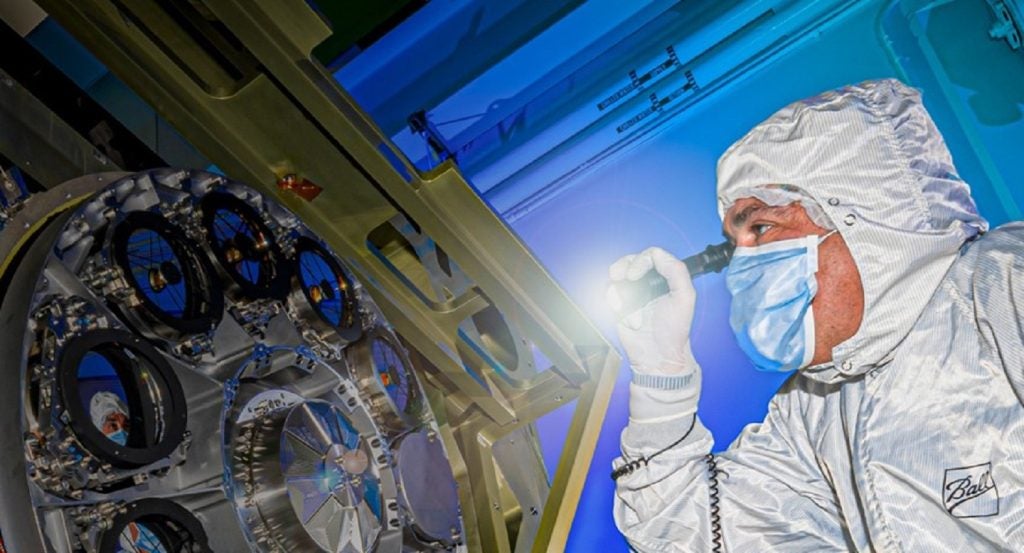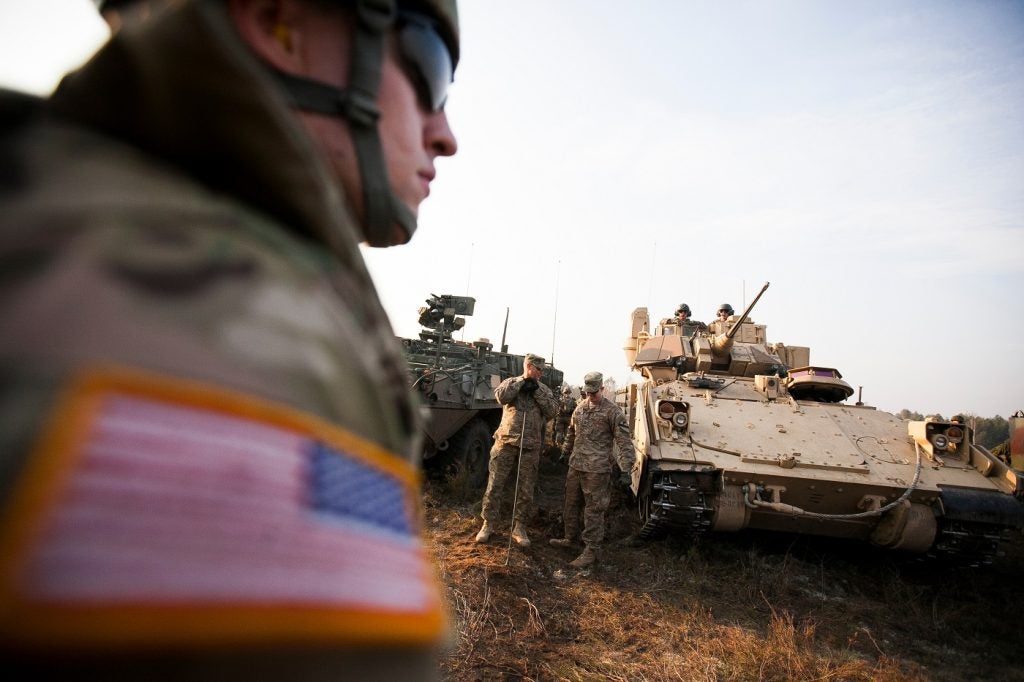The British Army’s global response force – comprising the Parachute Regiment, bolstered by artillery, engineers, signallers, medics and logisticans – evacuated British civilians from the ongoing violence in Sudan, followed by the high-intensity warfare training exercise Haraka Storm in Kenya.
“Sudan and Kenya were completely different situations, requiring different skills and mindsets,” explained Lieutenant Colonel Will Hunt, Commanding Officer of 3 PARA Battlegroup.
British troops trained in high-intensity combat, deploying equipment and vehicles by air as a response force.
Over a challenging six weeks the force deployed all their equipment from the air as a response force. “It has been hard soldiering with some testing problems to overcome, given our approach of not making it easy for ourselves with a limited vehicle fleet meaning lots of long marches.”
The training progressed through company-sized contingents using live ammunition toward a final mission which saw the whole force operating together. The final challenge for paratroopers was a 16-mile (25km) overnight march to assault an enemy position at the top of a rocky outcrop.
Training in the East African environment
As well as fighting an enemy force simulated by 1st Battalion Royal Irish Regiment, troops had to handle the environmental challenges of Kenya.
3 PARA’s Private Ryan Simpson said: “Firstly, it’s hot. Every day is a hot sunny day, which takes some getting used to.
“Secondly, the terrain is really steep and the ground is baked hard, which is tough on your knees, elbows and hands. On top of all that, there’s animals to be aware of – we’ve seen hyenas, lions and elephants.”
Under an agreement with the Kenyan government, up to six British infantry battlegroups per year carry out exercises in Kenya, to provide a stern test for units preparing to deploy on operations or assume high-readiness role.
Problems in the northern Sahel region
Governments in the Sahel region – located between the Saharan desert to the north and the Sudanian savanna to the south and stretching from the Atlantic to the Red Sea – have witnessed major instability, with violence erupting in Sudan throughout April and May this year and a military junta ousting the President of Niger Mohamed Bazoum at the end of July.
Meanwhile, Nato recently described its growing interest in the unstable region in a report published in May, entitled the ‘Strategic Foresight Analysis Regional Perspectives Report on North Africa and the Sahel’.
It argues that the hot and arid landscape, coupled with operating Jihadist insurgent groups such as Boko Haram and Islamic State, and the growing threat to democracy indirectly impacts European security.
“Overall, the most significant trends affecting all other trends in North Africa and the Sahel are expected population growth, climate change, and challenges in politics and governance. The confluence of these trends could significantly challenge governments, economies, societies, and food and water resources, contributing to instability and uncertainty in certain countries in the region for at least the next two decades.
“The increasing involvement and associated competition of Russia and China politically, economically, and socially in the region could result in greater potential for conflict, impact freedom of movement/ freedom of navigation, contest Western influence, and potentially challenge Nato security.
Should Nato partners find themselves embroiled in the ongoing conflicts across the Sahel then the British Army leads by example in maintaining a state of readiness for such environs.
Already the US Department of Defense is playing for time in an attempt to retain its intelligence Air Base 201, where it operates MQ-9 unmanned aerial vehicles. To protect its asset in the country, the department is torn over labelling the conflict in Niger a ‘coup’, when to most it appears to epitomise the definition exactly.











